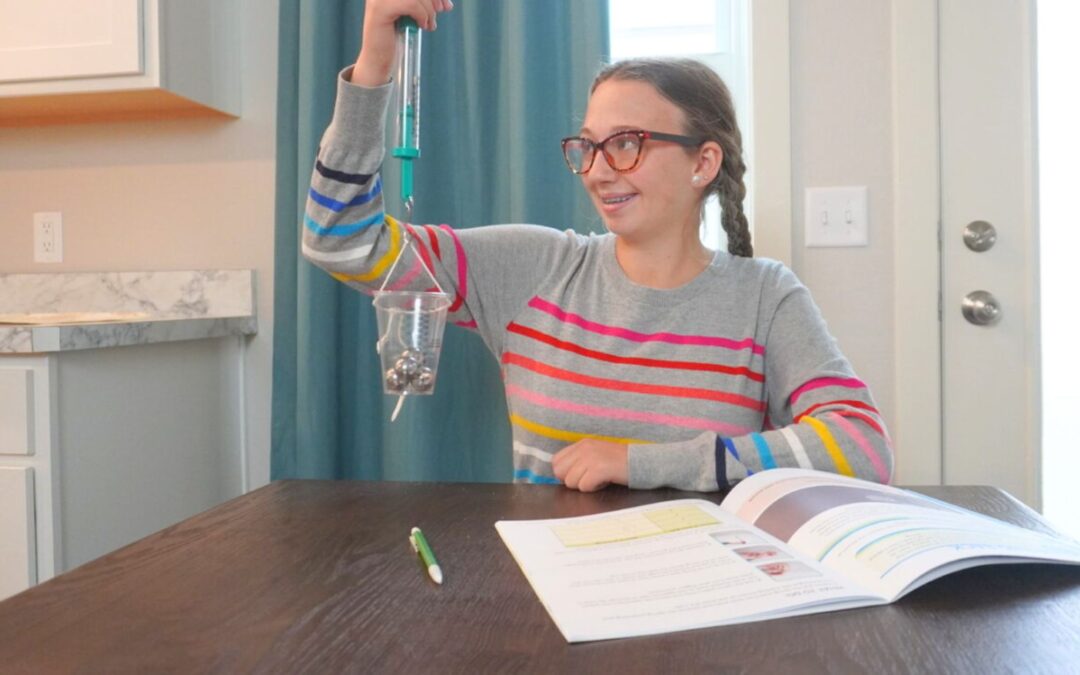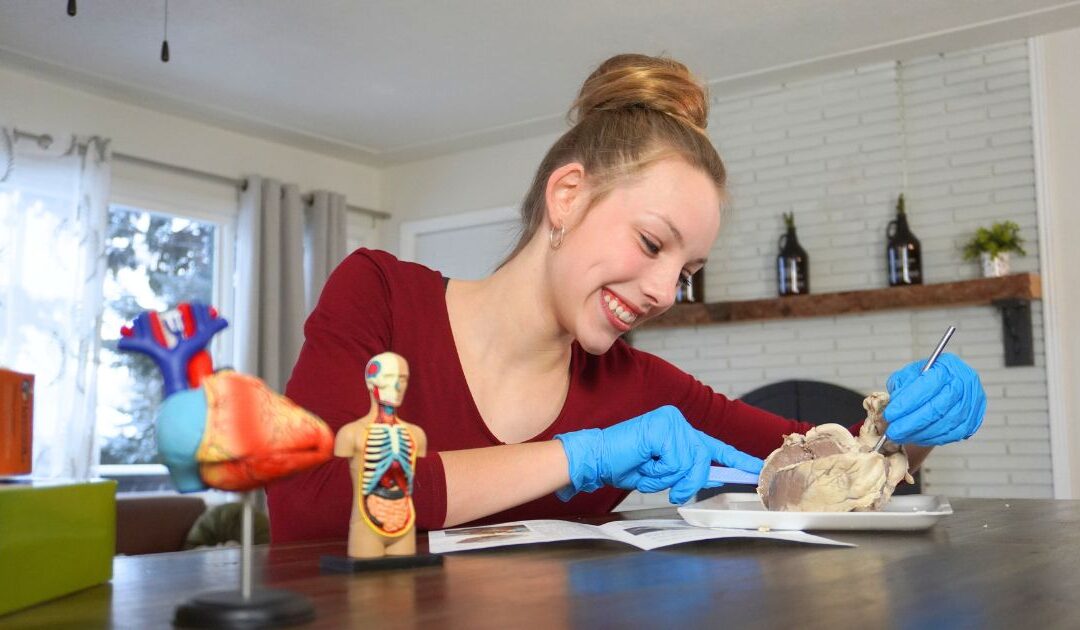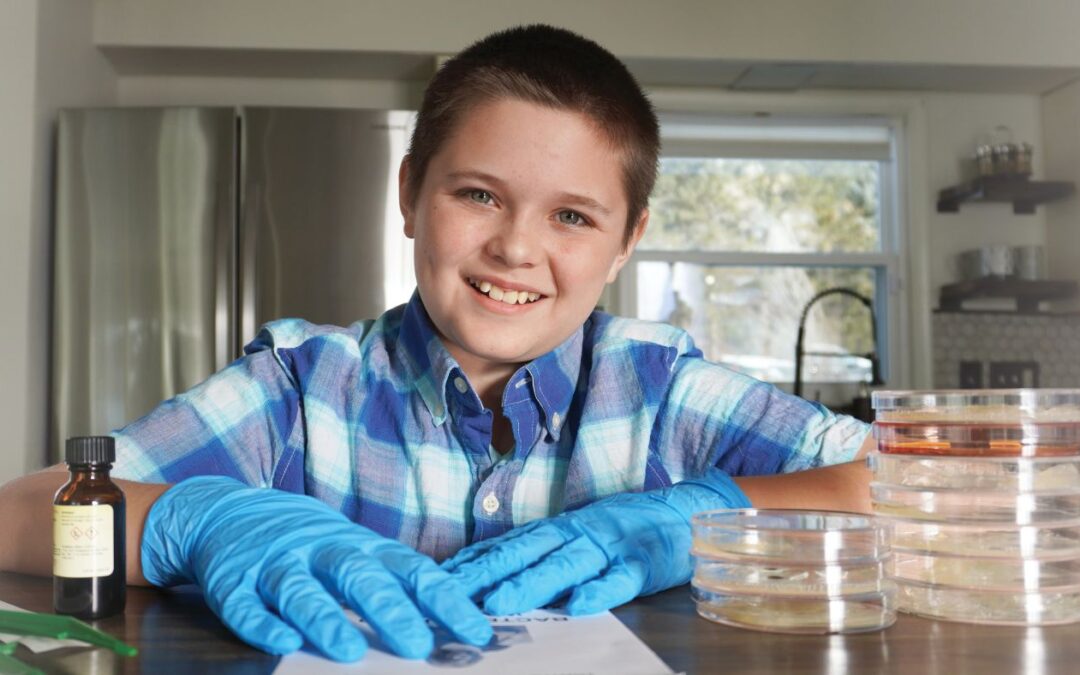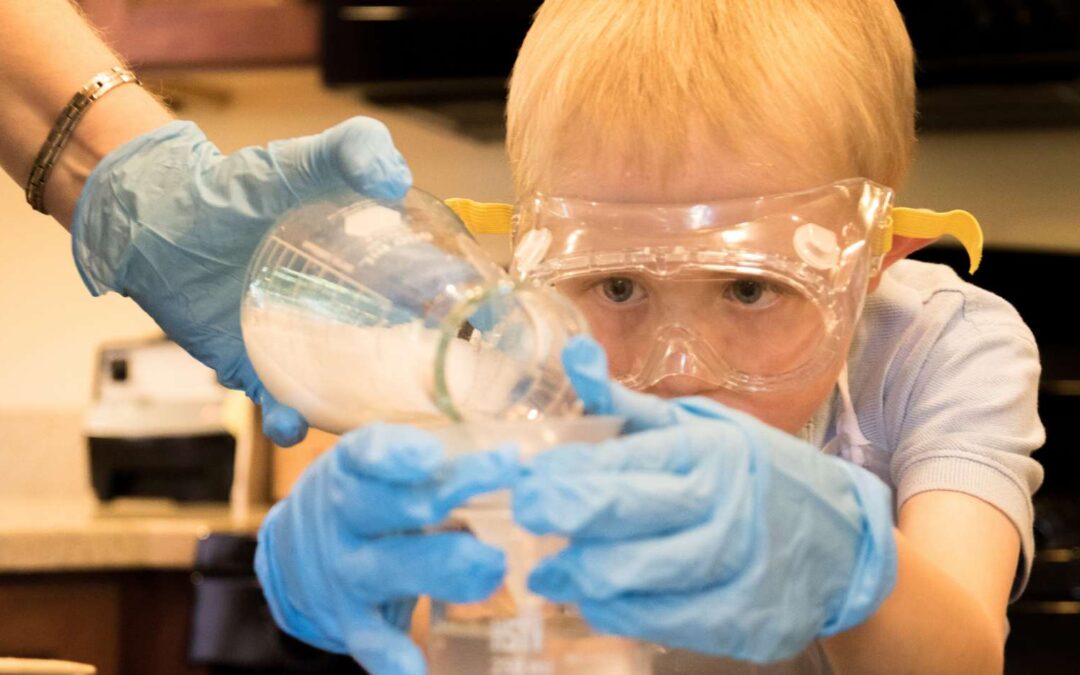When planning dissections for junior and senior high school students, plan one specimen and set of tools per two students. This provides the best learning situation. Students working in pairs have ample opportunity to fully participate in the dissection and to carefully examine the specimen. They are also able to share and discuss their observations. A full tool set is recommended at this level. Some students may also want to use latex gloves when handling the specimens.
Up to three students can share a specimen and tools for elementary level studies. Minimum tool requirements for this level are a #22 scalpel, dissecting scissors and dissecting pins.
If your curriculum does not explain how to do dissections, we suggest that you buy an inexpensive dissection guide for each different specimen. The guide will show you how to cut the specimen and where to find its primary organs. You can also buy the book How to Dissect, which includes directions for eleven different dissections.
Plan to do your dissection on a solid uncluttered surface with plenty of light. Also allot time for cleanup when dissection is over – rinse and dry all tools and clean off the table or counter-top you used. Note: If you have a complex specimen, and aren’t able to finish dissection in one sitting, you can store the specimen until a later time. Place it on its tray in a large ziplock bag, seal securely, and put it in a cool, dry place.





